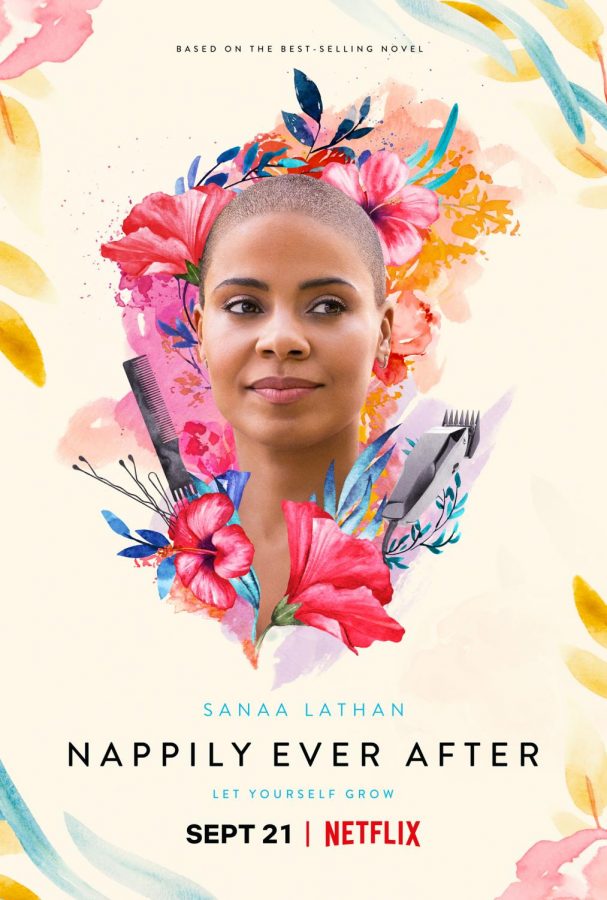Nappily Ever After Disappoints Novel Fans
October 3, 2018
After much anticipation, fans of Trisha R. Thomas’s “Nappily Ever After” were finally able to see the debut novel become a Netflix movie on Sept. 21.
The film, directed by Haifaa al-Mansour, opens on Advertising Executive Violet Jones (Sanaa Lathan) waking up next to Clint (Ricky Wittle), her boyfriend of two years. Right off the bat we are exposed to the dysfunction that lays beneath Violet’s seemingly perfect life when we see her go into the bathroom to prep her long, relaxed hair just to return to bed before Clint wakes. A bit later in the plot, after a relaxer mishap and a miscommunication about a birthday gift, Clint mentions Violet’s obsession with being perfect and the couple breaks up, sending Violent on a journey of self-discovery and acceptance.
The movie was supposed to be a heartwarming tale of love and self-acceptance, an ode to women everywhere who have struggled with embracing their natural appearance; however, the overly whiny and obsessive nature of Violet makes the character that we’re all supposed to root for almost impossible to connect to. The ridiculous happenings of the film regarding love interests and seemingly split-second personality shifts hinder the message that story is trying to get across. Despite all of this, the film itself is alright. Though plenty of fault can be found within Violet’s character as well as the pacing of the film, al-Mansour does an on-par job with getting the point across. By the end of the film, viewers know how they’re supposed to feel and the impact of the message is with them regardless.
Like most book to movie adaptations, much of the original content had to be cut in order to effectively and efficiently tell the story. When it comes to “Nappily Ever After” however, despite the theme and the characters being the same, it’s like you’re dealing with two completely different stories.
Not only does the strong, lovable Venus Johnston of the novel become the manic, obsessive Violet Jones, but Clint, the drop-dead gorgeous doctor who we manage to feel for and understand by the end of the story, becomes the jerk who still expects Violet to change for him. Tyson and Kandi, who played such large roles in each of the characters’ lives in the novel were reduced to nothing but single mentions. And, perhaps most importantly, we were not able to witness the assault and mistreatment that Venus faced that shaped her arc throughout the novel.
The movie didn’t just remove these aspects, it significantly changed the structure of the story as well. From the nature of Venus’ relationship with Clint, to the addition of the barber and his daughter who Violet came to love, the stories are nowhere near the same. We lose important relationships and interactions which means we lose the experiences which trigger necessary character development. As mentioned before, the decisions made and changes undergone by Violet are frankly ridiculous. We can see her develop as she’s supposed to but without significant incentive. The events that triggered her shifts were surface level and underdeveloped- nothing that would call for the fast personality spins that occurred.
All in all, the film was fine, as a stand-alone. By no means is it a masterpiece, but for those who know nothing of the original story, it can actually be quite enjoyable. When looked at in terms of being an adaptation, however, it falls short. Thomas’ story is a powerful tale of the reality of relationships, assault and self-perception that deserves to be told and although the movie wasn’t bad it did not do these messages justice.






